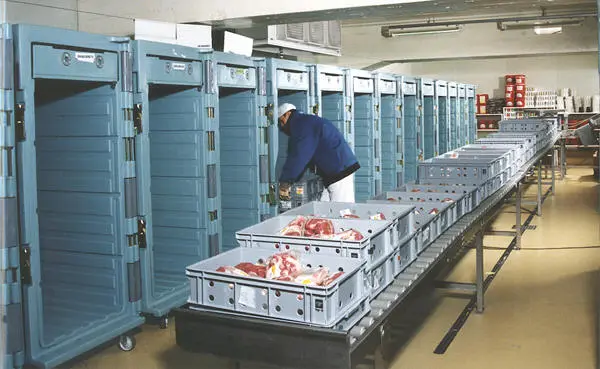Read in
frican policy leaders must support robust growth in the cold chain for the success of the African Continental Free Trade Area (AfCFTA) and to boost prosperity, food supply chain resilience, and trade across the continent, says the Global Cold Chain Alliance (GCCA) today as the GCCA Africa conference opens at the Westin Hotel in Cape Town.
The GCCA is the international association for temperature-controlled logistics businesses.
The GCCA Africa conference will see Africa’s cold chain professionals gather for two days of discussion on key challenges and opportunities related to the storage and distribution of perishable goods, including improving food security, reducing trade barriers, sustainability in a changing world and the impacts on food logistics of energy load shedding.
The GCCA’s message comes in a new Call to Action report published at the conference today which demonstrates the importance of collaboration between national governments across Africa and businesses operating temperature-controlled storage and distribution to deliver infrastructure, innovation and skills that are fit for today and for the future.
The report sets out a series of policy decisions that can boost investment into growing the cold chain.
GCCA Africa Director Paul Matthew says: “The growth of the cold chain in Africa is vital to a resilient and sustainable food system.
Our industry has a key role to play in driving African trade and economic growth, in the success of the African Continental Free Trade Area, and in providing a wide range of jobs across the continent for today and tomorrow.
However cold chain businesses looking to invest in their future and to grow face serious challenges such as reliability of energy supply, skills shortages and gaps in crucial infrastructure.
Today we publish our Call to Action detailing the policies that will enable governments and business to work together in growing the cold chain and helping realize Africa’s potential.”
The Call to Action report, entitled ‘Harnessing the Power of the Cold Chain to Deliver African Prosperity, Resilience and Trade’, asks policy makers to enact a series of policies including:
- Facilitating partnerships that will facilitate investment in logistics infrastructure, especially logistics hubs and corridors in key locations across the continent.
- Recognising Cold chain as critical infrastructure that must be prioritised during energy shortages.
- Promoting investment in energy generation and removing the barriers to making this possible, such as zoning restrictions and grid investment.
- Investing in cold chain infrastructure from reefer plug-in points to warehouse construction and transportation hubs across Africa’s Port network.
- Promoting the range of fulfilling lifelong careers available in cold chain, and ensuring access to practical training.



